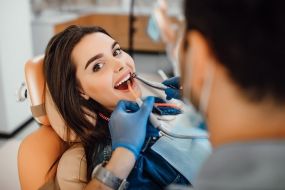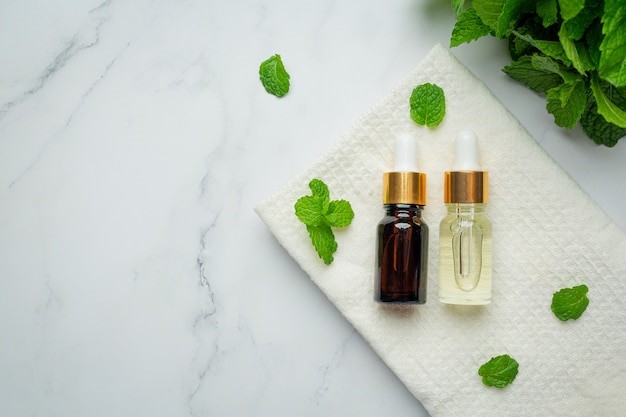What is Immunotherapy for Cancer and How It Works
Surgery, radiation, drugs, and other treatments are used in cancer therapy to either cure, treat, or slow the spread of cancer.
A comparatively recent kind of precision medicine called immunotherapy aids the body’s immune mechanism in identifying and combating cancer cells. Today’s article will cover what immunotherapy is and how it combats cancer.
What is Immunotherapy
Immunotherapy is not a new term in medical industries anymore. It makes use of chemicals produced by the body or in a lab to strengthen the immune system and assist the body in locating and eliminating cancer cells.
Numerous forms of cancer can get treated using immunotherapy. It can be administered alone or in conjunction with other cancer therapies such as chemotherapy.
When you look online for “Immunotherapy cancer (healthbanks.us/Immunotherapy-cancer),” you need to know it is effective for certain cancer patients, but it’s not a miracle and it’s not appropriate for everyone.
How Immunotherapy Combats Cancer
Immunotherapy is a type of treatment that targets specific immune system components to treat conditions like cancer. There are several ways to accomplish this:
• Stimulating or enhancing your immune system’s defensive capabilities to make it work tougher or smarter to detect and destroy cancer cells.
• To repair or enhance the capacity of your immune system to detect and eliminate cancer cells, researchers are creating in the lab chemicals that are identical to immune system components.
Immunotherapy has grown in importance as a component of various cancer treatments during the past few decades. New immunotherapy remedies are being evaluated and authorized, and the understanding of how the immune system functions are expanding quickly.
Some cancer types respond to immunotherapy more effectively than others. Some of these tumors are treated with it alone, while for others, it appears to perform best when combined with other forms of therapy.
The Benefits of Immunotherapy
The following are some of the main advantages of immunotherapy over traditional treatments like chemotherapy and radiation:
• Less negative short- and long-term impacts
• The capacity to continue therapy for an extended period while preserving a high quality of life
Conventional medicines may be effective in treating some malignancies, but they also carry a risk of serious, life-altering adverse effects, including peripheral neuropathy, cardiac issues, surgical difficulties, lung problems, hormone abnormalities, and memory and cognitive issues. While looking for “Immunotherapy cancer,” you should understand those standard treatments may eventually weaken or overwhelm the immune system.
According to studies, when patients do receive immunotherapy, the good reaction lasts longer than it would with chemotherapy. If the therapy is effective for you, it may be continued for a long time, enabling us to treat some malignancies as chronic illnesses. Immunotherapy may assist in keeping cancer under control, even if it may not completely disappear.
Investigating therapies on your own may be a smart place to start if you’re unsure whether immunotherapy is a possibility for you. Read up on the available therapies for the type of cancer you have.
Effective Tips for Better Dental Care

Consequences of poor oral hygiene include a higher risk of diabetes, cardiovascular illness, and respiratory conditions, as well as improper usage of hospital emergency rooms for treatable dental conditions.
Improved dental care is essential! Here are some practical tips for better oral hygiene:
Twice Daily for Two Minutes
Good practices are crucial! Particularly when discussing oral health.
The key to keeping good dental health is to brush for two minutes with fluoride toothpaste first thing in the morning and once more during the day. It is one of the many things to keep in mind before you get on your phone and search for the best dental care McLean”.
Utilize Interdental Cleaning
In the terminology, brushing can come above flossing, but not when it pertains to our teeth. The most efficient technique to cleanse our teeth is to clean between the teeth before brushing.
Cleansing in between our teeth utilizing dental floss, interdental brushes, or water or air flossers helps to remove food particles and bacteria. Plaque may be removed from teeth significantly more successfully as a result of this. A crucial component of any healthy oral hygiene practice is using floss or interdental brushes.
Test Out a Fluoride Mouthwash
By utilizing a fluoride mouthwash to assist clean the mouth of debris- you may improve your oral health. Additionally, it can aid in preventing the accumulation of plaque on our gums, in the spaces amongst our teeth, and on the top of our teeth in between brushings.
Try using a fluoride mouthwash every day as an addition to your twice-daily brushing, not as a substitute.
Watch Out for Munching Snacks
Avoid bad eating habits before it’s too late. Otherwise, you will be left wondering about those bad habits when you look online for “McLean Dentist (mcleanhealthysmiles.com/McLean-Dentist)” in case of urgency.
Eating three meals a day is healthier for our teeth and overall health than relying on snacks to get us through the day. Attempt to keep a healthy, nutritious diet, and avoid sweets whenever you can for the sake of your teeth.
Say Yes to Regular Brushing and No to Aggressive Brushing
The majority of people are conscious that one of the most crucial habits for eliminating plaque and germs and maintaining clean teeth is cleaning twice a day. However, brushing could only be efficient if people employ the right method.
Too-vigorous brushing or utilizing a toothbrush with a rough bristle might harm the gums and tooth enamel. Gum erosion, tooth discomfort, and irreparable harm to the defensive enamel of teeth are possible side effects.
Avoid Smoking
Smoking alters the way the mouth looks by causing the teeth and tongue to yellow and can make the breath smell terrible. Let’s face it- smoking is really harmful to your health. So it makes sense to break that undesirable behavior.
Maintaining proper dental hygiene from childhood through adulthood can aid in maintaining healthy teeth and gums. Before it’s too late, be alert.
How to Use Essential Oils to Treat Sinus Infections

Sinus congestion can be uncomfortable, to say the least. Breathing and sleeping become difficult, and the pressure felt behind the eyes can become exceedingly painful. Add to that the running nose and the cough; it is a recipe for inconvenient times. Did you know, however, that essential oils can clear up nasal passages and relieve sinus pressure and other congestion symptoms?
For centuries now, essential oils have been used as a natural supplement that supports emotional and physical health. Even in your surroundings, you may have heard or seen people switching to essential oils after they have had their share of synthetic medications.
In case of sinus infections too, people tend to use over-the-counter (OTC) decongestants or antibiotics. However, given the limited use of these medications among people with co-morbidities and pregnant women, many people make the switch to wholesome solutions.
This is where essential oils for sinus infections step in.
Several studies across time have found varying levels of effectiveness among different essential oils. Tea tree, or melaleuca, oil boasts antiseptic, antibacterial, and anti-inflammatory properties, which have proven to be helpful in curtailing sinus tissue inflammation and the growth of bacteria that lead to sinus congestion.
Upon deeper research individual components of essential oils, such as 1,8 cineole—the main component of eucalyptus oil—have proven effective in clearing airways of mucus and acting as a natural cough suppressant. The relieving properties of oregano oil are also being studied.
How to use essential oils to treat sinus infections?
Inhalation of the essential oil is the best way to relieve a stuffy nose.
Steam inhalation involves combining essential oils with hot water to create therapeutic steam. Three to seven drops of essential oil added to boiling water in a large pot, followed by steam inhalation using a towel over your head can show results in a mere couple of minutes.
One can also opt for direct inhalation, which refers to inhaling the essential oil right from the bottle. Adding a drop of oil to a handkerchief, cotton ball, or inhaler tube, and then taking a deep breath in has also proven useful and effective.
If an aromatherapy bath sounds enticing to you, do consider adding a few drops of diluted essential oil to your bathwater. This soothing technique promises to leave you calm and rejuvenated. You can also plug in diffusers in your room. Diffusers disperse essential oils throughout the air, allowing them to dilute before being inhaled.
While these were all the methods of using essential oils for sinus infections, here are some things that you should avoid.
• Do not inhale high doses of essential oils for a prolonged period of time. They are potent and can make you feel dizzy and lightheaded.
• Do not ingest essential oils as they contain strong, toxic compounds.
• Pregnant women and children should stay away from essential oils.
Cancer Insurance – Plan Benefits, Features, & How to Buy
When our body is affected by cancer disease, the cells grow abnormally. This abnormal growth of cells spreads quickly to other organs damaging the entire body. The treatment of cancer in the best private hospital can be expensive. Are you wondering how to take care of these expenses? Cancer insurance can help.
It is an insurance plan that covers all the medical expenses related to cancer. It is advantageous as you can use it to pay a large sum of capital if the policyholder is diagnosed with cancer. Some plans also cover other expenses such as radiation, hospitalization, surgeries, chemotherapy, and many others.
What are the types of cancer covered in a cancer insurance policy?
Our bodies can be affected by various types of cancer at any age. Before buying any policy, you must know the different types of cancer they cover. Given below is a list of some common types of cancer covered in a cancer insurance plan at early as well as advanced stages:
• Lung cancer
• Stomach cancer
• Ovarian cancer
• Breast cancer
• Prostate cancer
• Hypopharynx cancer
It is a small list and not exhaustive. We recommend you read the entire document on the best cancer insurance. Do this to know the complete details before buying the insurance.
What are the benefits of cancer insurance plans?
A cancer insurance policy has many benefits to offer. Some of these are:
• A cancer insurance plan covers the medical treatment expenses for all stages of cancer.
• If the policy term has no claims mentioned, then the sum of money will rise as part of the No claim bonus.
• If the policyholder is diagnosed with cancer, they will get a lump sum from the insurer.
• Some insurance plans provide a small monthly amount as income in cases of a cancer diagnosis.
• The coverage of insurance will not stop after the initial diagnosis. It will continue till the time the insured sum is exhausted.
• According to section 80D of the Income Tax Act, 1961, cancer policyholders can get a tax deduction on the premiums paid for cancer insurance.
A certain amount of money is set as the maximum insured sum while buying the policy. This amount represents the total coverage you will get in case you are diagnosed with cancer. But you will not get all the insured money at once. You will get 25% of the total money during early-stage cancer detection and the remaining 75% at the later advanced stages of the disease. The best cancer insurance will give you 100% of the insured money as a lump sum in case a direct diagnosis with late-stage cancer occurs. Meanwhile, you can also opt for an affordable cord blood bank $19.99/month to get the best solution in this regard.
Why does everyone need a cancer insurance plan?
Cancer is a dangerous disease known to humankind. All the types of cancers are super painful and tough to deal with. But modern medical science is advanced enough to treat even the later stages of this deadly disease which was once considered incurable. But the cost of these treatments can be as high. The treatment will empty the savings of an average working person. People also go into debt because of this. But, by buying cancer insurance, you can get a lump sum amount to use in the treatment.
A critical illness plan covers the cost of medical illnesses such as cardiac arrest, paralysis, kidney failure, organ failure, and many more. It also pays out for the expenses of last-stage cancer. But these plans do not cover early-stage cancer as it is not considered a critical illness. It is the main underlying difference between a cancer policy and a critical illness plan. The former will pay out a lump sum of money at all stages of cancer, while the latter will not.
It is important to note that such policies do not cover skin cancer, cancer developed due to an STI, or cancer developed due to nuclear contamination. Depending on your cancer stage, decide whether you want term insurance with other benefits or standard cancer insurance plans.
Meibomian Gland Dysfunction: Causes, Symptoms, and Treatments
Tears play an essential part in maintaining healthy eyes and a clear vision. They keep the eyes lubricated and supply them with the necessary moisture. The tear film is protected by a layer of oil that prevents its evaporation.
Your eyelids contain tiny glands that supply the eyes with the oil and help in maintaining the quality and quantity of tears. However, sometimes these glands may get clogged or inflamed. In such a situation, the glands cannot supply the eyes with the moisture.
This can cause discomfort, dryness, grittiness, and blurry vision. Such a situation is referred to as Meibomian Gland Dysfunction. MGD is an eye infection that usually affects elderly people, but people of any age group can fall prey to the infection.
Let us discuss MGD, its cause, symptoms, and treatment alternatives.
1. Causes of MGD
Aging is one of the major causes of MGD. As a person grows older, the number of meibomian glands may reduce, and they may fail to lubricate the eyes. However, other factors like ethnicity, lifestyle choices, and medical conditions can also make you more susceptible to MGD.
High cholesterol, triglycerides, and some auto-immune diseases can also increase your chances of such dysfunction. Patients who wear contact lenses are more likely to experience an eye infection. Bacterial infections can also result in swollen eyelids and inflamed glands. Damage or inflammation in the cornea can also result in dry eyes.
Several medications can alter hormone levels and cause hindrance to oil production. Hence, you need to consult with your doctor and discuss all your current medication before commencing your Meibomian Gland Dysfunction Treatments.
2. Symptoms of MGD
The symptoms of MGD may not appear in its early stages. When the oil production reduces, the symptoms start to show up slowly. Dryness, redness, and itchiness are some of the common symptoms of dry eyes.
People may also experience a burning sensation and blurry vision.
Thru inner rims of the eyes may appear inflamed or uneven. Some people also experience the sensation of a foreign body in their eyes.
If you need to spend long hours in front of your computer, the symptoms can be severe, and you need to be extra careful.
3. Meibomian Gland Dysfunction Treatments
Based on your individual condition, underlying cause, and the symptoms, your doctor will prescribe a suitable course of action. Some of the treatment alternatives for MGD include lubricants to provide moisture to the eyes. They can be in the form of eye drops or ointments.
Meibomian gland dysfunction can also result from bacterial infection. Your doctor may also prescribe antibiotics in such a case. Cyclosporine could also be recommended for a short duration to suppress the immune system.
To unclog the meibomian gland, your doctor may recommend directing heat and light pressure to the area to remove blockages. There are self-heating pads that serve as one of the useful Meibomian Gland Dysfunction Treatments. These pads direct heat or pulsed light to open the meibomian glands.
Certain steroids can also help in reducing inflammation of the eyelids and restore the meibomian glands so that they can provide the necessary moisture to your eyes.
You can also use traditional methods like warm compresses to ease the infection. All you need to do is soak a clean cloth in warm water and place it above your eyes. Keep it there for a few minutes to provide relief to your eyes. Remove and soak it again in warm water. Repeat as many times as needed.
Make sure the water is warm and not hot as the area around the eyes is extremely sensitive. Also, you can accompany the warm compresses with a gentle massage to improve circulation and remove the blockage.
Now that you are aware of the causes, symptoms, and various alternative treatments of MGD, you can choose Meibomian Gland Dysfunction Treatments accordingly.






